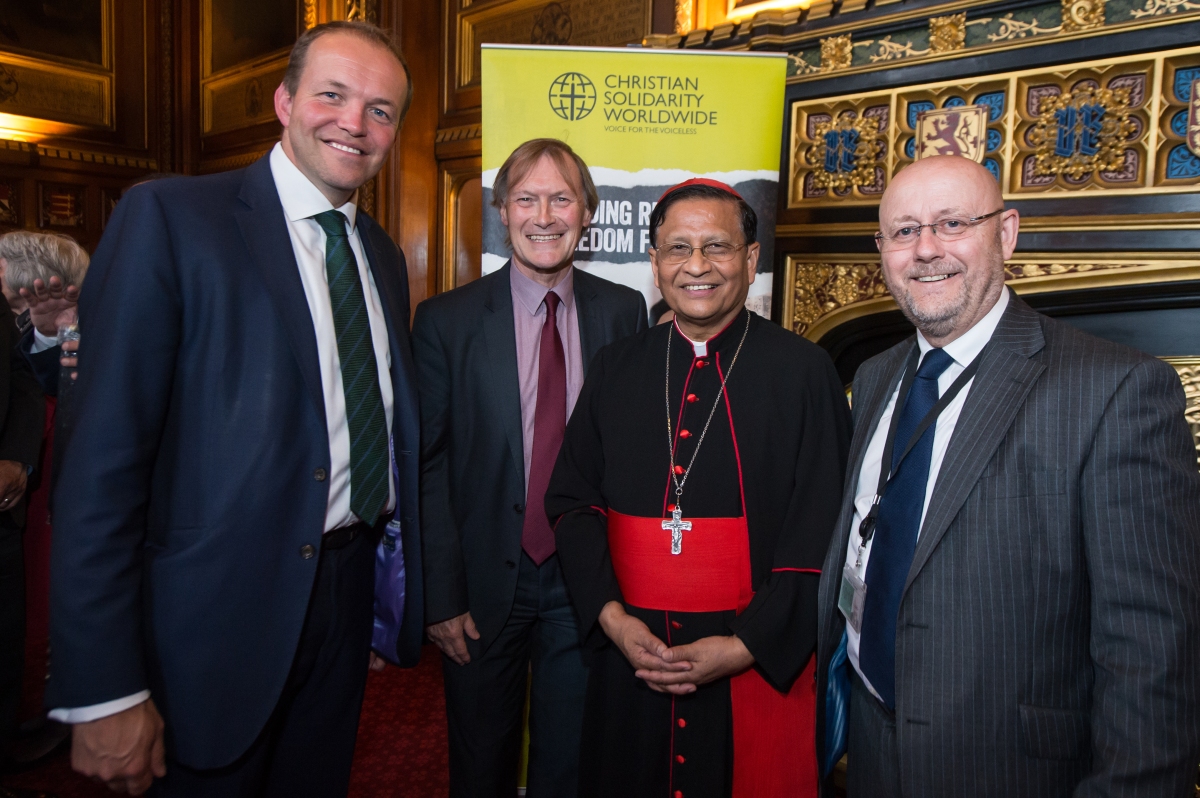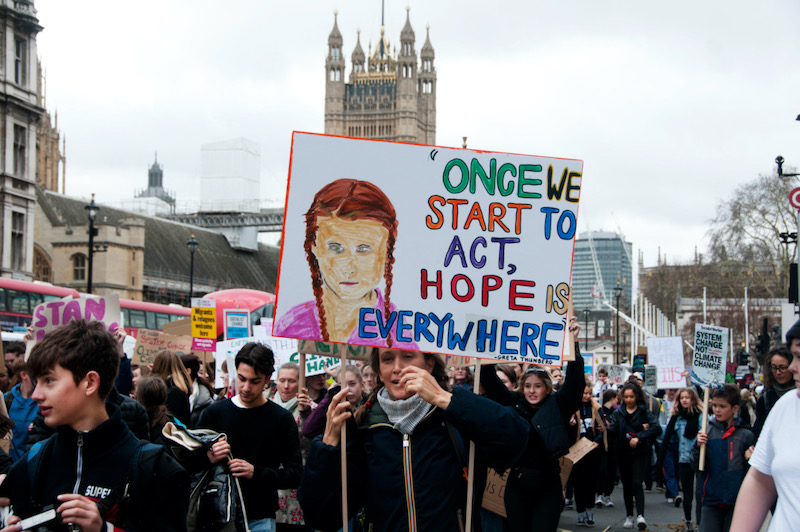A few months ago there was a short article in The Tablet on the Catholic groups that had joined a £1 billion fossil fuel divestment campaign. Many readers would have nodded sagely and moved on, sure that this must be the right response. Most of us accept that climate change is a major threat, while oil and gas companies are deeply implicated in the problem.
Even before COP26, November’s all-important UN conference on climate change, appeared on the horizon, many faith organisations had concluded that it was no longer ethically sound to have investments in the fossil fuel industry. This is to be commended, it gives a strong signal to the society we live in.
However, such a decision must necessarily be set into a broader context. Any organisation which has divested or sold certain shares has much more to do. Anyone who has not yet done so does not need to follow blindly if they prefer other paths to the same goal. All in all, divestment is sometimes necessary but far from sufficient.
It is impressive that Laudato Si’ and its successor document have inspired so many people. Laudato Si’ emphasises the need to replace, “progressively and without delay”, technology based on the use of highly polluting fossil fuels. Journeying Towards Care For Our Common Home promoted “responsible investments in social and environmental sectors, for example by evaluating progressive disinvestment from the fossil-fuel sector”.
A combination of moral, economic and financial arguments is often put forward for immediate divestment. To some Christians, investing in fossil fuel producing companies, such as the big oil companies, is akin to investing in “sin sectors”, such as cigarettes, gambling, firearms or pornography producers. The businesses may be legal but are seen as unethical. Economic arguments are based on the concept of “externalities”, in other words that private profits are often made at the expense of public costs, in this case pollution and global warming. As Andrew Hauser at the Bank of England warned: “There are increasingly persuasive reasons to believe that financial markets are materially under-pricing the cost of emissions, and hence climate risks.” Lastly, there are financial arguments, namely the risk of stranded assets as regulation or consumer choice changes, resulting in falling share prices and portfolio losses. Studies suggest that 66-80 per cent of fossil fuel reserves need to stay in the ground if a 2°C climate change target by 2050 is to be achieved.
Would it be good news therefore if every faith-based investor sold all their shares in coal, gas and oil companies? Not necessarily. There is a dangerous fallacy of composition. If one investor sells, someone else buys. Selling bonds or shares does not destroy them, ownership merely changes hands. Sarah Breeden, executive director at the Bank of England, noted: “While individual investors can divest, the financial system as a whole cannot.”
She went on to highlight that “seemingly rational individual actions” could make the problem much larger. Put simply, if an ethical investor sells shares, does a less ethical investor buy them, perhaps private equity or a foreign government, not so worried about climate change. The Financial Times recently noted that hedge funds have been eagerly snapping up oil and gas shares. It is worth noting that the 13 largest energy companies globally are owned by governments, for example in China, Russia, Saudi Arabia or Venezuela. For all the attention on companies like Exxon and Shell, the oil majors account for less than 15 per cent of the world’s supply of oil according to the International Energy Agency.
Divestment is not a panacea, so other options must be on the table. In many cases, it may be better for investors to engage with company executives to accelerate moves to lower carbon emissions. Asset managers have established Environmental, Social and Governance departments with the aim of encouraging higher standards, not just on climate change but across an array of United Nations Sustainable Development Goals. The recent success of activist shareholders at the annual general meetings of ExxonMobil and Chevron is an example of how shareholders can spur companies to transition much more quickly. Big oil companies such as BP or Shell are on a path towards becoming renewable energy companies; the debate is about the speed of their adjustments.
It is also a rather confused logic if a faith-based investor boycotts swathes of companies, yet at the same time continues to rely on their products and services in everyday life. Even under the fastest transition scenario to carbon neutral, the world will continue to use fossil fuels for years to come. Electric cars may soon replace petrol, but heat pumps will only slowly replace gas central heating while the airline and shipping industries are years away from using sustainable fuels. Coal usage must be halted quickly, especially across Asia, but experts agree that natural gas will necessarily be the transition fuel until renewables reach critical mass in the 2030s and 2040s.
Some Catholic investors will prefer to exclude certain stocks, others will want to see their investments have an impact for the greater good. One option to combine these objectives is to measure the carbon footprint of the whole portfolio and aim to reduce it over time. Alongside fossil fuel producers stand an array of sectors which materially contribute to global warming. For example, food production generates more than a third of manmade greenhouse gas emissions – only a minority of which relates to fossil fuels. Emissions from global shipping match those of Germany. Major industries, such as aluminium, cement, chemicals and steel production are big emitters that need to accelerate carbon capture or embrace alternative energy sources.
An undue focus on divesting from certain fossil fuel producers risks overlooking necessary actions elsewhere. To quote Andrew Hauser from the Bank of England “divestment is a powerful tool and should remain squarely in the toolkit. But it should be used as a credible threat to reinforce incentives, not an indiscriminate quick fix”. What other tools would be useful? Examples would include adopting responsible investment policies aimed at reforestation and restoring biodiversity, or encouraging governments to reduce fossil fuel demand through higher energy taxes and lower energy subsidies, or campaigning for better energy conservation – after all in 2020 the residential sector accounted for 20 per cent of the UK’s carbon dioxide emissions.
We read Laudato Si’, or the latest IPCC report, or the daily news about heat domes and wildfires, and know that humanity has entered a major period of adjustment. Can we go fast enough? Symbolic actions are useful, but we must take many difficult practical decisions. To accelerate the switch to energy sources and modes of consumption that pose the smallest risks to the planet, selective divestment from some companies should stand alongside engaging with many more companies and governments, and dramatically changing how we as Catholics buy and sell, save and invest, trade and travel. Mitigating climate change demands harder work than selling a few shares.
Andrew Milligan is a Trustee of the Archdiocese of St Andrews and Edinburgh, and writing in a personal capacity as an independent investment consultant.



 Loading ...
Loading ...
What do you think?
You can post as a subscriber user ...
User comments (0)